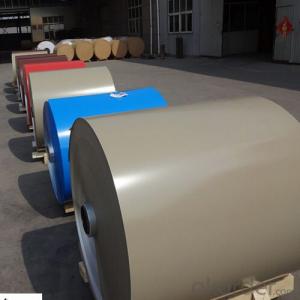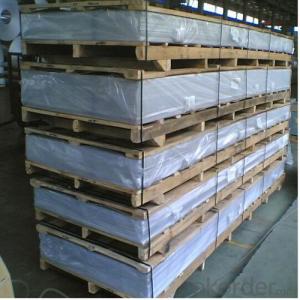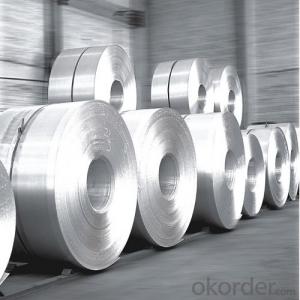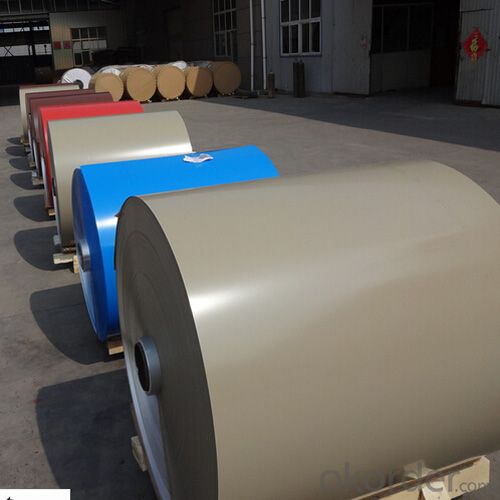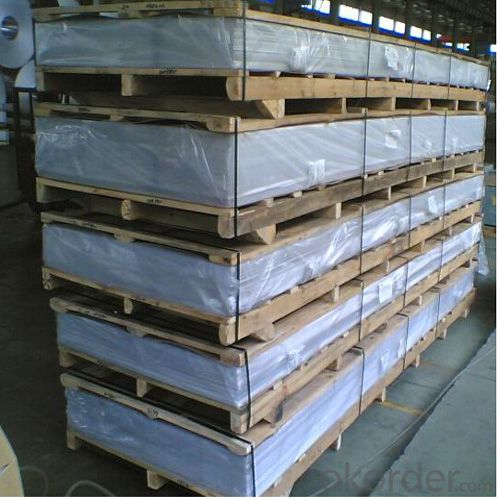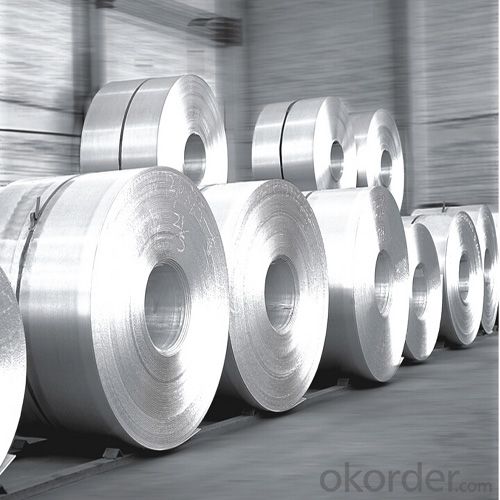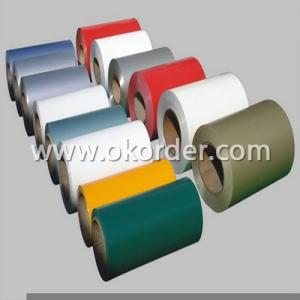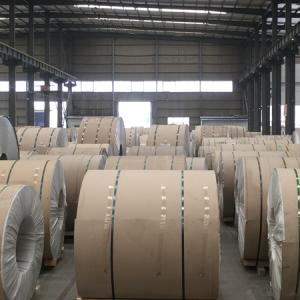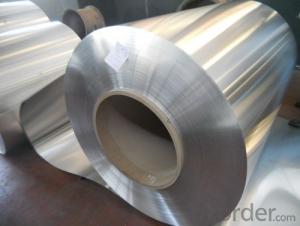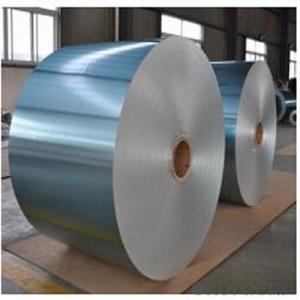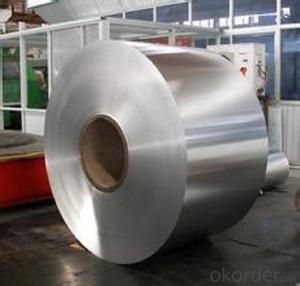Wide Aluminum Coil for Radiator - Grade Competitive Price
- Loading Port:
- Shanghai
- Payment Terms:
- TT OR LC
- Min Order Qty:
- 5 m.t.
- Supply Capability:
- 10000 m.t./month
OKorder Service Pledge
OKorder Financial Service
You Might Also Like
Specification
1.Structure of Aluminum Coil Grade for Radiator Description:
They are widely used in construction and decoration, hardware and electric appliances manufacture, automobile manufacture and other industrial and civil purposes, such as electronic capacitor, rice cooker, refrigerator, computer casting, lamp shade, air-conditioner, cosmetics cover and box, air-conditioner radiator, inner container of disinfecting cabinet, ceiling board, automobile motherboard, cover board and top board, etc.
2.Main Features of Aluminum Coil Grade for Radiator :
1) Radiator
2) Condenser
3) Insulation Material
4) construction
3. Aluminum Coil Grade for Radiator Images:
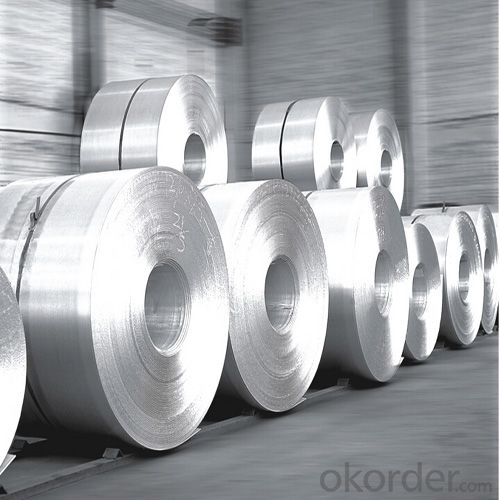
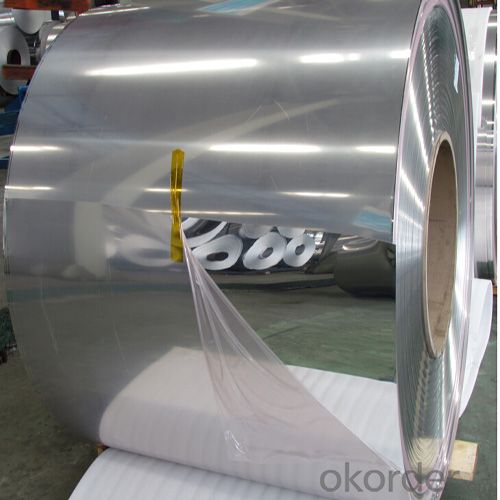
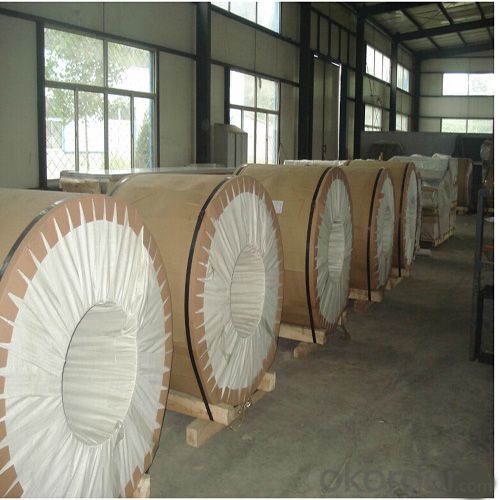
4. Aluminum Coil Grade for Radiator Specification:
Products | Alloy | Temper | Thickness(mm) | Width(mm) | length |
| Aluminum coil | 1XXX, 3003 8011, 3105 | H14, H16, H18, H24 , O | 0.08mm-6.0mm | 200mm-1500mm | 500mm-4000mm |
5.FAQ
Q1.How long have you been in this product?
A1:More than 10 years.
Q2. What's the minium quantity(MOQ)?
A2. 5 Metric tons
Q3. How long is shipping time?
A3. 7 (ready-made products)-25 days(OEM)
Q4. How do you guarantee the quality?
A4. 1. Cooperating and Exchaning experience with sevral quoted aluminum companies
2. Japanese and Swiss production line and skilled works (regular training and testing)
3. more than 10 years production experience.
Q5. Do you have after sale service?
A5. Yes. Any quality problem occurs within one year, pls take photoes,we will be responsible.
- Q: This question asks about potential health hazards associated with the use of aluminum coils.
- <p>There are concerns regarding the use of aluminum coils, particularly in cooking and food preparation, due to the potential for aluminum to leach into food. While aluminum is generally recognized as safe, excessive intake over a long period has been linked to various health issues, including neurological disorders and cognitive impairment. However, the risk is considered low for most people, as the body does not absorb a significant amount of aluminum from food or cookware. It's important to note that the scientific community has not reached a consensus on the extent of these risks, and further research is needed. To minimize potential exposure, it's recommended to use alternative cookware materials like stainless steel or cast iron, especially for acidic foods that may increase aluminum leaching.</p>
- Q: What are the common sizes of aluminum coils?
- The specific industry and application determine the varying common sizes of aluminum coils. However, different industries commonly utilize certain standard sizes. In the construction field, aluminum coils typically have a thickness ranging from 0.018 inches to 0.032 inches and can be as wide as 60 inches. These coils find their purpose in roofing, siding, and gutter applications. In the automotive sector, aluminum coils are frequently employed in the production of body panels and structural components. The sizes of these coils can greatly differ, varying from thin strips for small parts to larger coils with widths of up to 72 inches for bigger components. The packaging industry utilizes aluminum coils to manufacture foil products, including food packaging and industrial packaging. The thickness of these coils can range between 0.00017 inches and 0.0005 inches, while the widths commonly fall between 12 inches and 24 inches. It is important to acknowledge that these examples represent only a selection of common sizes, and specific applications may necessitate customized aluminum coil sizes. Furthermore, manufacturers possess the capability to produce coils in various dimensions to meet the specific requirements of their customers.
- Q: when ferrous sulfate is poured into an aluminium can, holes appear in the can. Why?
- aluminum reacts via a redox reaction with iron(II): 3 Fe2+(aq) + 2 Al(s) --- 3 Fe(s) + 2 Al3+(aq)
- Q: What is the minimum thickness available for aluminum coils?
- The minimum thickness available for aluminum coils typically ranges from 0.01mm to 0.2mm, depending on the specific requirements and manufacturing capabilities.
- Q: How to use aluminum sheet to roll a 12m-long aluminum coil with a diameter of 184cm?
- According to project experience, first you should check the specification of the aluminum sheet and then design crafts such as connection method, installation and transportation according to equipment.
- Q: We are shopping for a new LQ trailer. We are looking at several different brands and noticed that some have aluminum skin on an aluminum frame, and others have aluminum skin on a steel frame. Other than the obvious differences in weight and cost, what are other benefits/disadvantages of each? Thanks
- Well, you already know the differences in weight and cost, so I won't address those. Advantages to an aluminum frame are that it will not rust although it may corrode. However, most steel frames now are coated to protect them from the elements and prevent rusting. Or, the steel can be galvanized. So, if you get a steel frame, check for this. Aluminum is a more brittle metal than steel, so some people think that is does not perform as well in a crash. However, there are no horse trailer crash statistics published to prove or disprove this. The flip side is that a steel frame can have hidden rust weakening it and making it perform poorly in a crash. Should something happen to your frame, steel is often reparable, while aluminum sometimes is not and the trailer is totaled. Aluminum is more difficult to weld than steel.
- Q: Can aluminum coils be used in the production of electrical enclosures?
- Absolutely! Electrical enclosures can indeed be manufactured using aluminum coils. When it comes to producing these enclosures, aluminum is highly favored due to its exceptional conductivity, lightweight properties, and ability to resist corrosion. By utilizing aluminum coils, we are able to create enclosures that are both seamless and robust, guaranteeing efficient dissipation of heat and providing optimal protection for electrical components. Moreover, the versatility of aluminum coils allows for easy molding and shaping into a wide range of forms and sizes, offering great flexibility in design. In conclusion, incorporating aluminum coils into the production process of electrical enclosures not only ensures reliability but also proves to be a cost-effective solution.
- Q: What precautions should be taken when operating a welding torch on aluminum coils to ensure safety?
- <p>When using a welding torch with aluminum coils, it's crucial to follow safety measures to prevent accidents and ensure a safe working environment. Always wear appropriate personal protective equipment (PPE), including heat-resistant gloves, safety glasses, and a welding helmet. Ensure the work area is well-ventilated to avoid inhaling fumes. Use a backdraft hood or fume extraction system to capture and remove welding fumes. Keep the work area clean and free of flammable materials. Regularly inspect the torch for any damage or wear. Use the correct type of welding rod for aluminum and ensure the gas supply is compatible with aluminum welding. Never leave a lit torch unattended and always follow the manufacturer's guidelines for safe operation.</p>
- Q: This question asks for methods to clean an aluminum coil, which involves understanding the appropriate cleaning materials and techniques to avoid damaging the aluminum.
- <p>To clean an aluminum coil, start by using a soft cloth or sponge dampened with warm water and mild dish soap. Gently wipe the coil to remove dirt and grime. Avoid abrasive materials or harsh chemicals that could scratch the surface. After cleaning, rinse the coil thoroughly with clean water to remove any soap residue. Dry the coil completely to prevent water spots or corrosion. For stubborn stains, consider using a specialized aluminum cleaner, but always follow the manufacturer's instructions and test on a small area first.</p>
- Q: What are the various classifications of aluminum coil grades?
- <p>Aluminum coils are classified into different grades based on their composition and properties. The most common grades include 1000 series (99% pure aluminum), 3000 series (aluminum-manganese alloys), 5000 series (aluminum-magnesium alloys), and 6000 series (aluminum-silico-magnesium alloys). Each series has specific characteristics, such as corrosion resistance, formability, and strength, which determine their suitability for various applications like construction, transportation, and packaging. Additionally, there are 2000 series (aluminum-copper alloys), 4000 series (aluminum-silicon alloys), 7000 series (aluminum-zinc-magnesium alloys), and 8000 series (other alloys), each with unique properties and applications.</p>
Send your message to us
Wide Aluminum Coil for Radiator - Grade Competitive Price
- Loading Port:
- Shanghai
- Payment Terms:
- TT OR LC
- Min Order Qty:
- 5 m.t.
- Supply Capability:
- 10000 m.t./month
OKorder Service Pledge
OKorder Financial Service
Similar products
Hot products
Hot Searches
Related keywords
